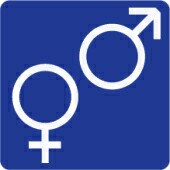
MONDAY, May 17 (HealthDay News) — Gender can trigger different immune responses and different side effects to particular vaccines, a new analysis suggests.
The finding, reported in the May issue of The Lancet Infectious Diseases, stems from a review of prior research concerning vaccines that target a range of diseases including yellow fever, influenza, measles, mumps and rubella, hepatitis and herpes simplex. Hormonal changes that occur during pregnancy were also tracked during the review for their possible effect on vaccines.
“Sex can affect the frequency and severity of adverse effects of vaccination, including fever, pain and inflammation,” lead author Sabra Klein, an assistant professor in the department of molecular microbiology and immunology at John Hopkins in Baltimore, said in a news release.
“This is likely due to the fact that women typically mount stronger immune responses to vaccinations compared to men,” she added.
Klein and her team found that despite prior concerns about the role sex might play in vaccine response, most of the reviewed studies did not actually tally the ways in which gender impacted vaccine effectiveness or side effects.
The authors believe the current research deficit undermines efforts to improve the way major vaccine initiatives — such as the recent campaign to distribute the H1N1 flu vaccine — are launched.
The research team therefore said that more study is needed to examine this issue. Better knowledge on the subject could translate into new strategies for developing vaccination programs, in order to optimize dosing schedules and increase the number of people being immunized overall.
More information
For more on vaccines and side effects, visit the U.S. Centers for Disease Control and Prevention.

